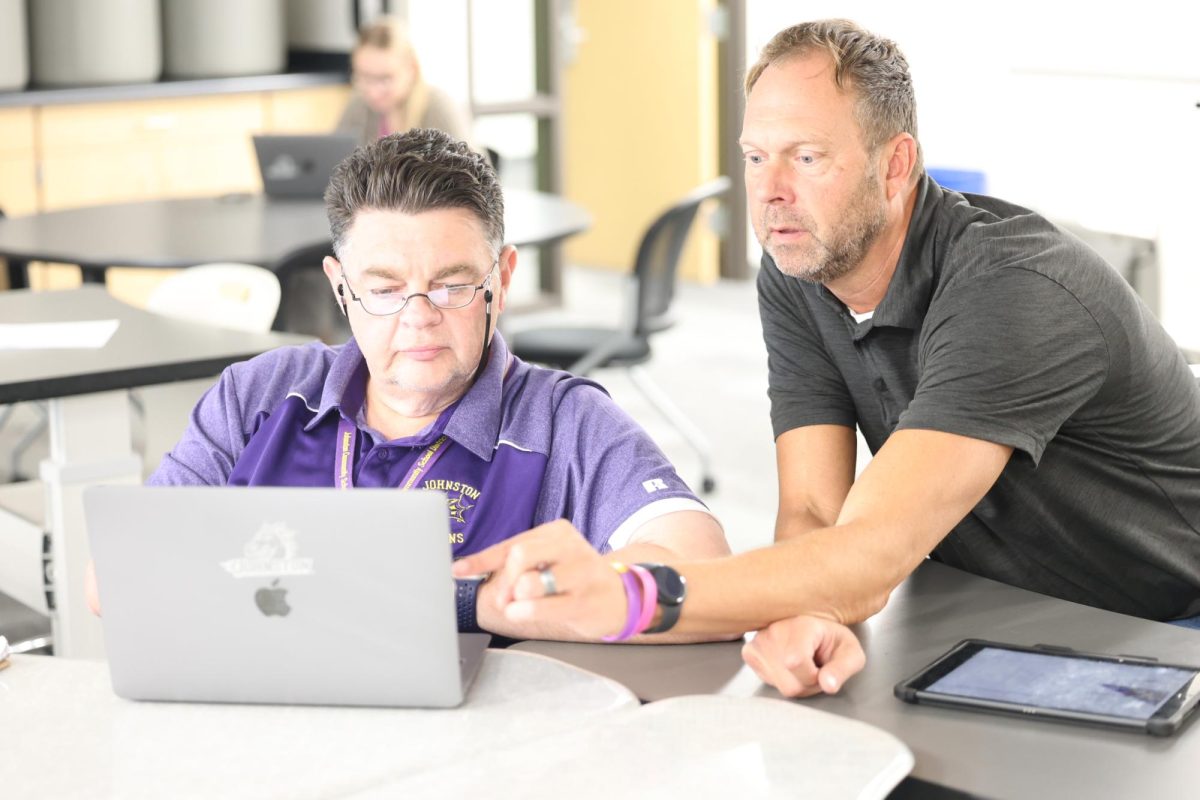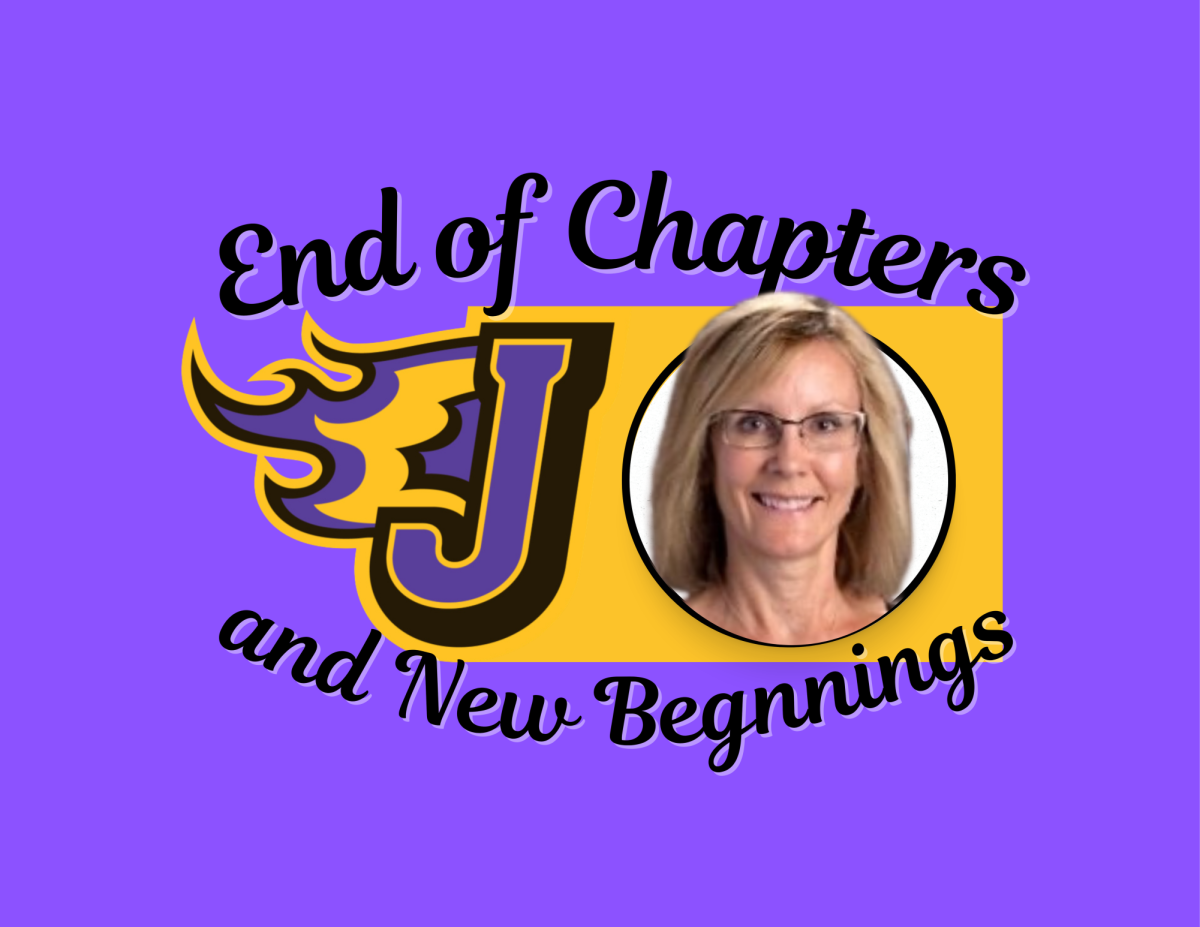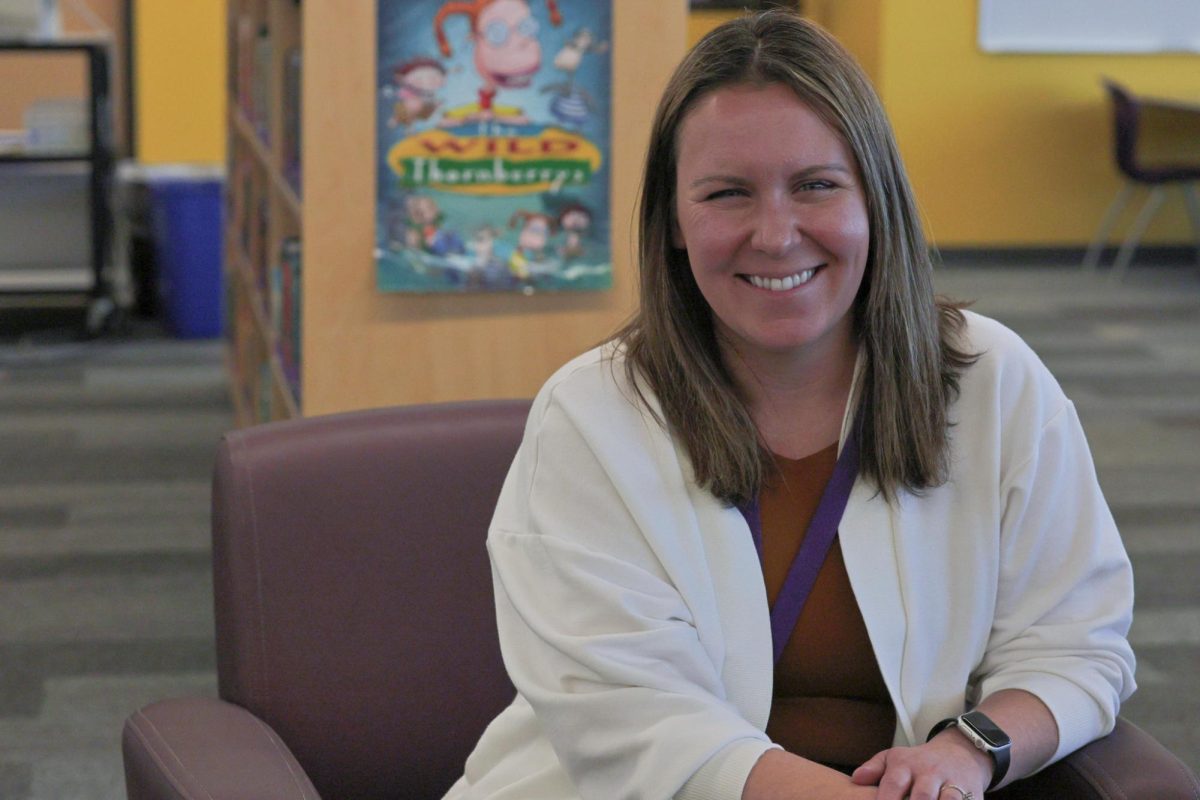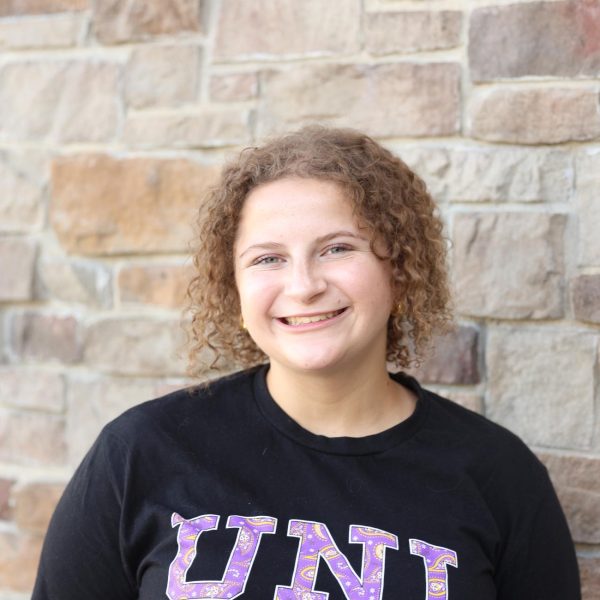When walking in the main office doors every Friday morning, you’re greeted with a fist bump and hear Mr. Augspurger telling you, “Happy Friday!”
Mark Augspurger has been an instructional coach at JHS for the last seven years and before that, he was a world studies teacher.
“I started substitute teaching in 1995, so next year will be 30 years. For a year and a half roughly I was a substitute teacher and then for 16 years, I was a middle school 7th-8th grade history teacher at Norwalk. Then world studies here at the old building for four or five years and since the new building I’ve been an instructional coach,” Augspurger said.
Being an instructional coach is different from every other position in the building and in a big way.
“It really boils down to providing support for teachers, two words are providing support,” Augspurger said.
Besides providing support for teachers Augspurger’s job has many other aspects that students don’t see.
“A lot of what we do is providing professional development. So like the Monday you guys will have off we are basically in charge of constructing the schedules that the teachers get on those days. The other thing we do with professional development a lot is supporting new teachers,” Augspurger said.
Along with professional development and supporting new teachers, Augspurger and the other instructional coaches have different departments that they specialize in.
“We do a lot of the things together and then we try to divide the workload amongst departments. I work primarily with social studies and English. Ms. Howe works primarily with math and science. Ms. Jensen works with science and then all of the other related arts and special ed,” Augspurger said.
Being an instructional coach has many positives like not having to do the same thing every day, but it also has its challenges.
“There are many, but if I had to distill those down to one it would probably be the lack of predictability—when I was in the classroom, I had a schedule: when I was teaching, when I ate lunch, when I had plan time, etc,” Augspurger said.
While being an instructional coach now can be challenging, there were other factors during the COVID-19 pandemic that made Augspurger’s job even more difficult.
“It was hours and hours of “What’s the schedule going to look like? What online program are we going to go through? What’s the expectations of teachers?” So that was very, very busy as an instructional coach during the pandemic and then… PD was all on Zoom. You’re trying to teach or help 94 teachers and it’s no different than how it was in the classroom,” Augspurger said.
As things begin to return to normal after the pandemic there is one big thing that hasn’t changed after the pandemic in terms of culture at JHS. That is attendance.
“Attendance is the first one, not being absent, not missing class time because that has so many ramifications like what they’re learning, grades, etc,” Augspurger said.
After not being in the classroom for the last seven years, Augspurger still finds himself missing his previous job. One thing in particular he misses is the ‘aha’ moment he had with students.
“The ‘aha’ moment when you reach a student. You know when their eyes light up, that lightbulb moment. More interactions with students, knowing all the student’s names and truly knowing them personally that’s the biggest one,” Augspurger said.










